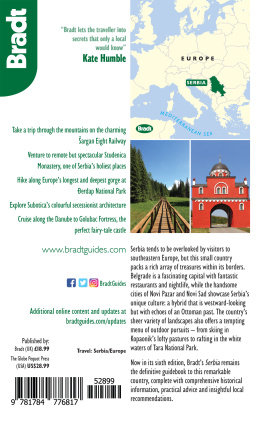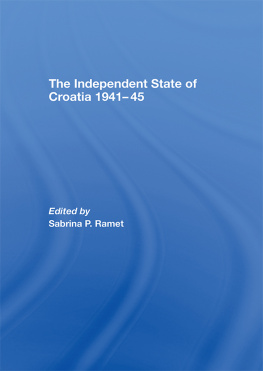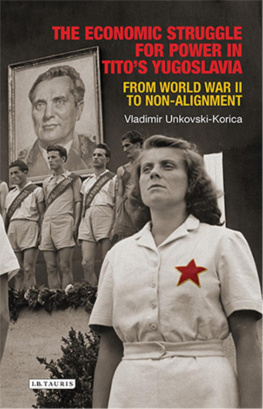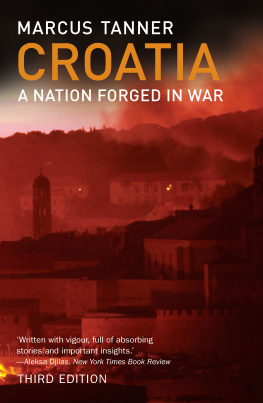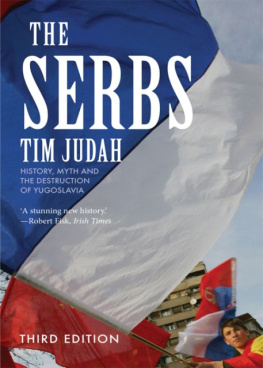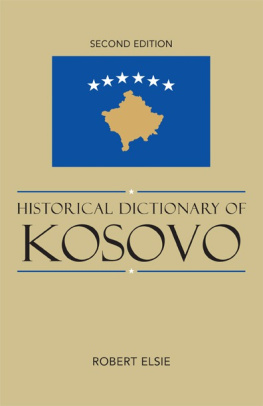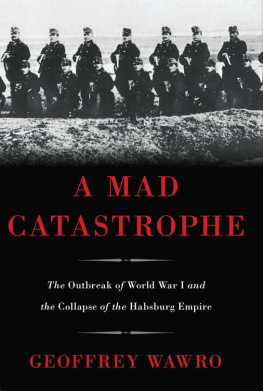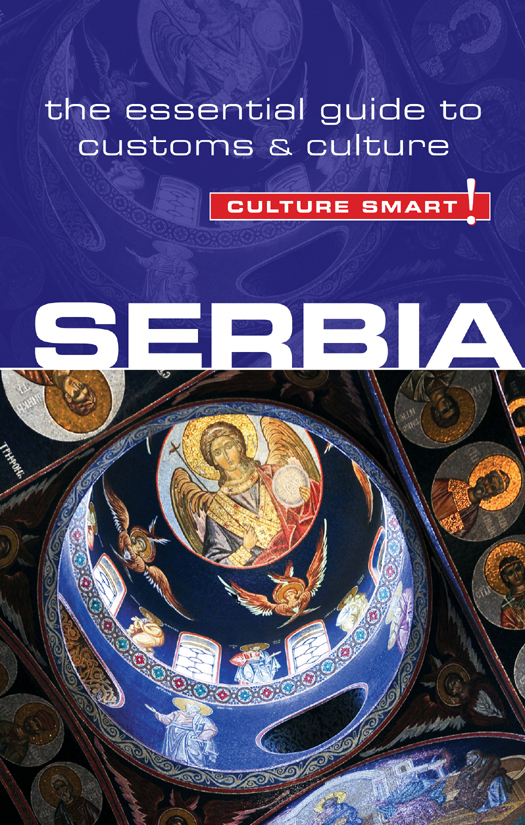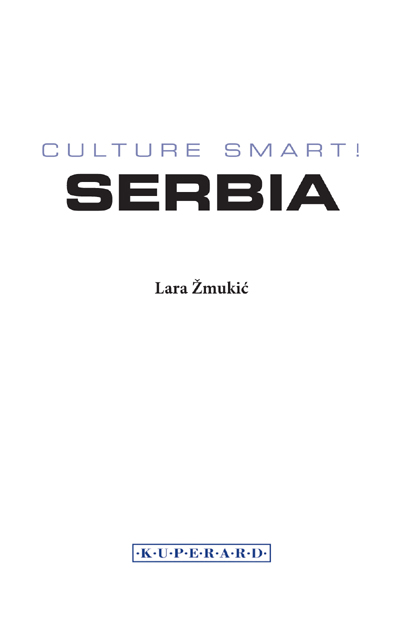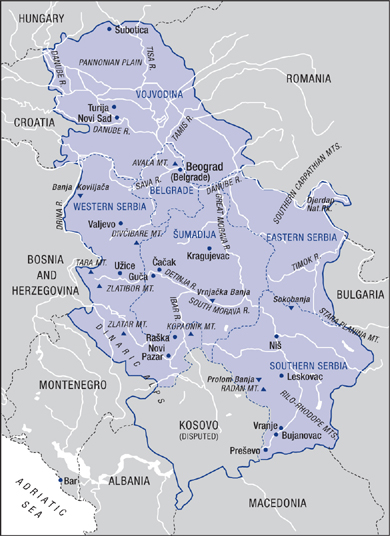eISBN: 978-1-85733-655-9
British Library Cataloguing in Publication Data
First published in Great Britain
by Kuperard, an imprint of Bravo Ltd
59 Hutton Grove, London N12 8DS
Tel: +44 (0) 20 8446 2440 Fax: +44 (0) 20 8446 2441
www.culturesmart.co.uk
Inquiries:
Distributed in the United States and Canada
by Random House Distribution Services
1745 Broadway, New York, NY 10019
Tel: +1 (212) 572-2844 Fax: +1 (212) 572-4961
Inquiries:
Series Editor Geoffrey Chesler
Design Bobby Birchall
Cover image: Interior of St. George church in Topola, central Serbia, burial place of the ducal and royal family of Serbia and later Yugoslavia. Dreamstime
Photographs on the following pages reproduced by permission of the author: .
Images on the following pages reproduced under Creative Commons Attribution-Share Alike 3.0 Unported license: Orjen
Reproduced under Creative Commons Attribution-Share Alike 3.0 Serbia license: Goldfinger at sr.wikipedia
Reproduced under Creative Commons Attribution-Share Alike 2.5 Generic license: Vervin
Reproduced under Creative Commons Attribution-Share Alike 2.0 Generic license: tamburix
Reproduced under Creative Commons Attribution-Share Alike 1.0 Generic license: Adrianicz
Photo on Fotolia
v3.1
About the Author
Lara muki grew up in Montenegro and Serbia, trained as an economist, and graduated from the Novi Sad Faculty of Economics in northern Serbia. In 1997 she moved to Great Britain, where she met and married her husband. She worked in public-sector finance at a senior level for more than ten years before entering the private sector. Today she is the managing director of a media company specializing in the production and post-production of video content for a varied range of blue-chip clients, including the BBC, CNN, and Xerox. She divides her time between London, Belgrade, and Montenegro, where she still has many family connections, and she is a regular visitor to other countries in the Balkans.
The Culture Smart! series is continuing to expand.
For further information and latest titles visit
www.culturesmart.co.uk
The publishers would like to thank CultureSmart!Consulting for its help in researching and developing the concept for this series.
CultureSmart!Consulting creates tailor-made seminars and consultancy programs to meet a wide range of corporate, public-sector, and individual needs. Whether delivering courses on multicultural team building in the USA, preparing Chinese engineers for a posting in Europe, training call-center staff in India, or raising the awareness of police forces to the needs of diverse ethnic communities, it provides essential, practical, and powerful skills worldwide to an increasingly international workforce.
For details, visit www.culturesmartconsulting.com
CultureSmart!Consulting and CultureSmart! guides have both contributed to and featured regularly in the weekly travel program Fast Track on BBC World TV.
contents
Map of Serbia
introduction
Filled with ancient sites and architectural riches, Serbia is a landlocked country positioned at the crossroads of central and southeastern Europe. A meeting place of different cultures and faiths, for centuries it was a major link between the Eastern and Western worlds, not only geographically but also politically and culturally. It is also a land of great beauty, with diverse climates and unusual landscapes.
Serbia was the dominant power in the former Yugoslavia, and during the protracted breakup of the Yugoslav republic it received a bad press in the West. However, the truth, as always, is much more nuanced and interesting than the accounts offered in the media. Some people may associate Serbia only with its recent conflicts and political turmoil; others will know about its world-famous music festivals, Exit and Gua, or its top-class athletes, such as the worlds number one tennis player, Novak Djokovi. Visitors will know it for its rich cuisine, the friendliness of its people, its stunning scenery, and its numerous monasteries, many in spectacular settings. It is a country steeped in history.
The Serbs are proud, passionate, and generous people with an independent streak. Since they first entered the region as warrior tribes allied with the Byzantine Empire, they have always had to fight for survival against powerful enemies, including the Ottoman Turks and the Habsburg Empire. Following the First World War, they took the lead in forming independent Yugoslavia with the other Southern Slavic peoples. They resisted Hitler heroically. Under Titos rule Yugoslavia steered an independent course, separate from Western capitalism and Soviet communism, until after his death in 1980 the multinational state disintegrated amid bitter conflict.
The last of these conflicts, the war over the secession of Kosovo, saw Serbia bombed by NATO forces for two and a half months. This devastation, combined with international isolation, caused the Serbs to rise up against their leaders in the Bulldozer Revolutiona campaign of civil resistance that brought about democratic government in 2000. Today Serbia has its gaze firmly set on Europe and the West.
Against this turbulent backdrop, the visitor to Serbia needs to be well informed and sensitive to peoples feelings. Culture Smart! Serbia introduces you to a diverse, complex, and dynamic society, and provides an insight into Serbian values and the Serbian way of life. It will tell you who the Serbs are, what are they like, what they love, and what they respect. It guides you through their customs, quirks, and etiquette, and offers tips on communicating and doing business with them. It will tell you how people behave in particular situations and how they experience their culture and customs, so that you know how to respond appropriately. As a visitor to Serbia, if you show interest and respect, you will receive warm hospitality and lasting loyalty in return.
Key Facts
| Official Name | Republic of Serbia, Republika Srbija | In the current administrative form since 2006 |
| Capital City | Belgrade, Beograd | Population 1.1m in 2006 |
| Other Major Cities | Novi Sad, Ni, Subotica, Valjevo, Kragujevac, Uice, aak |
| Area | 34,116 sq.mi (88,361 sq.km) | Landlocked country |
| Borders | Bosnia and Herzegovina, Croatia, Montenegro, Macedonia, Bulgaria, Romania, and Hungary | Used to border Albania through the disputed province of Kosovo |
| Climate | Cold winters with heavy precipitation; hot and humid summers | Conditions can vary across the country owing to the differences in terrain, and proximity to the plains or mountains. |
| Currency | Serbian dinar (RSD) |
|


